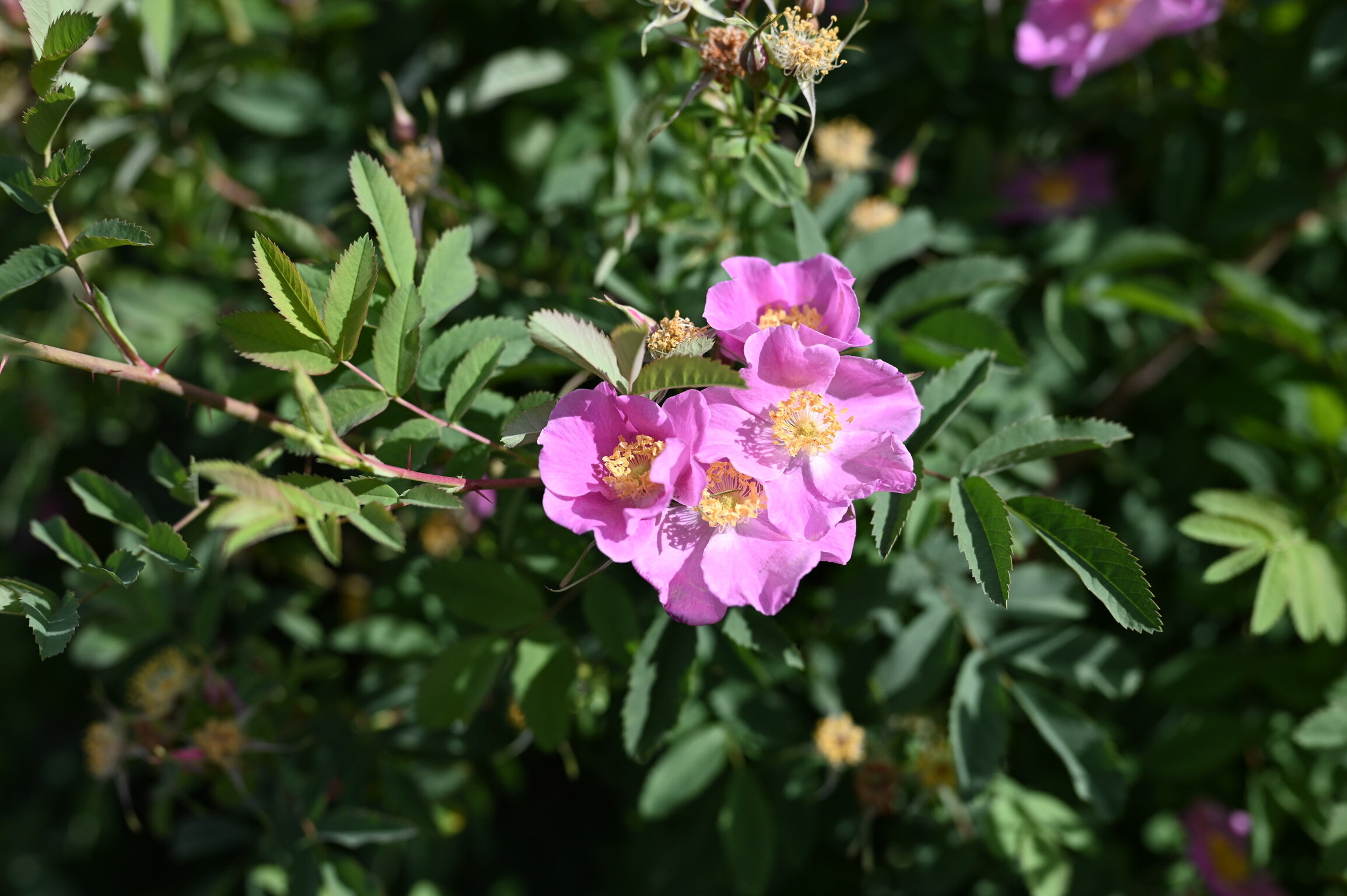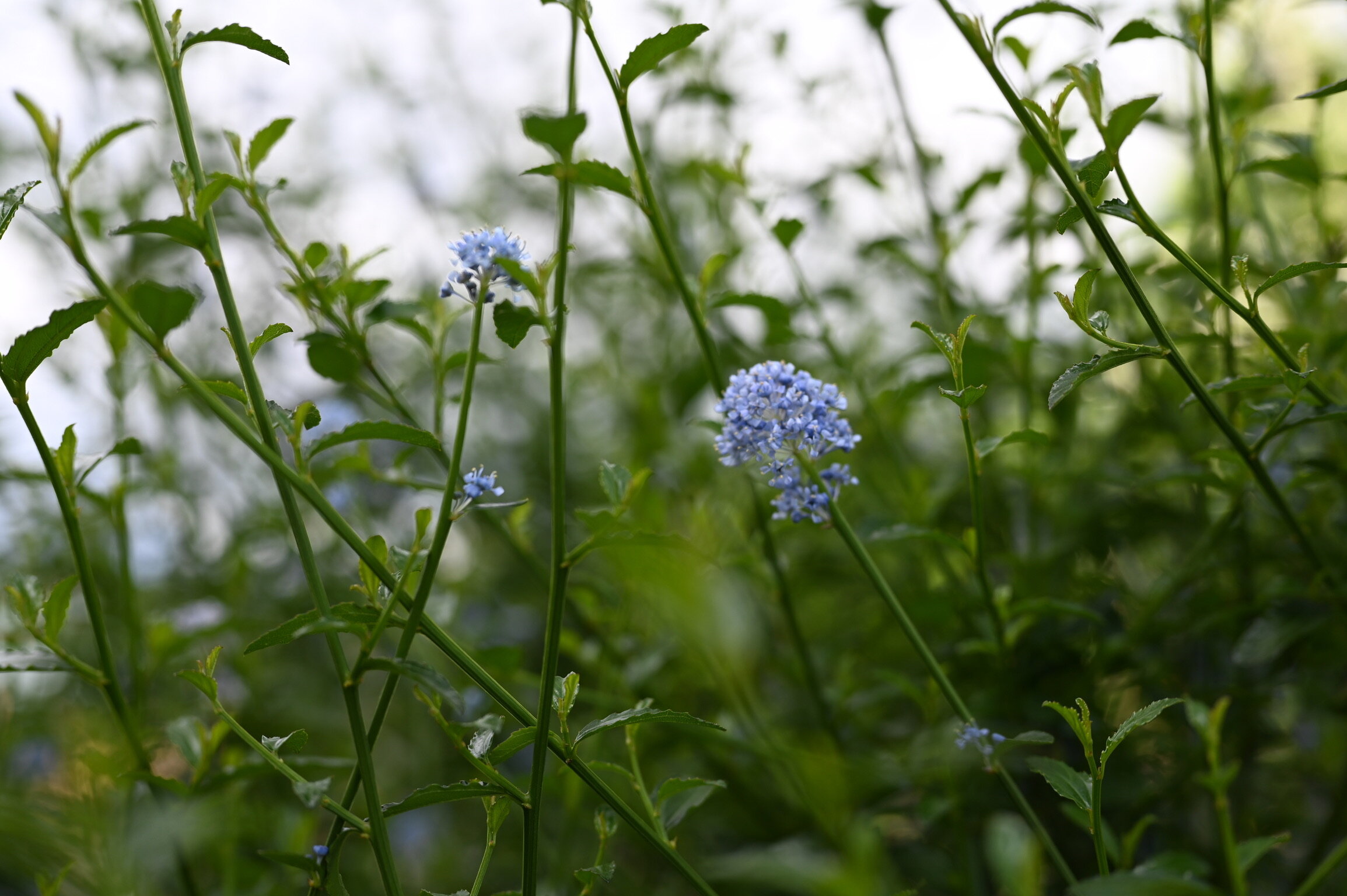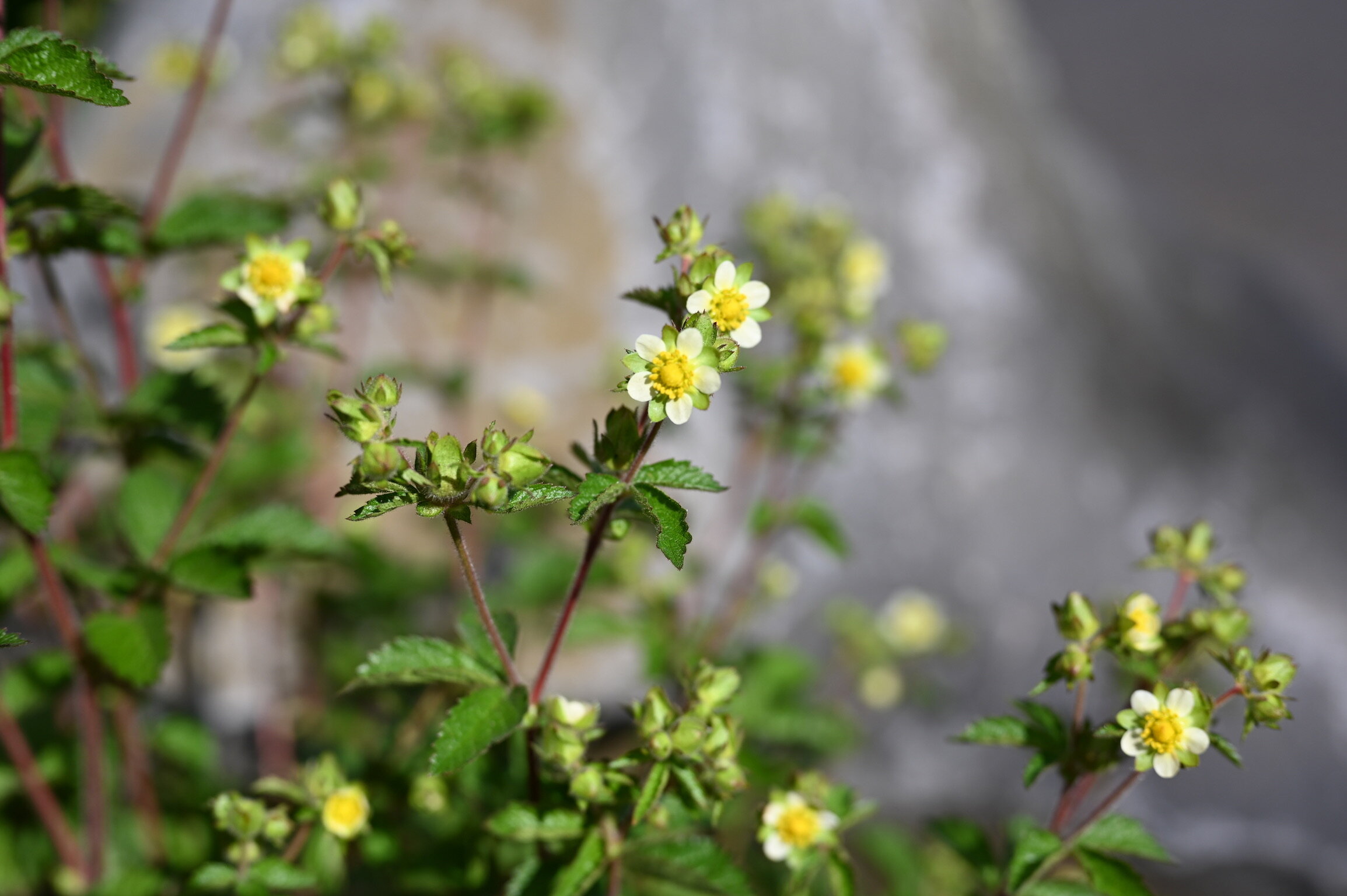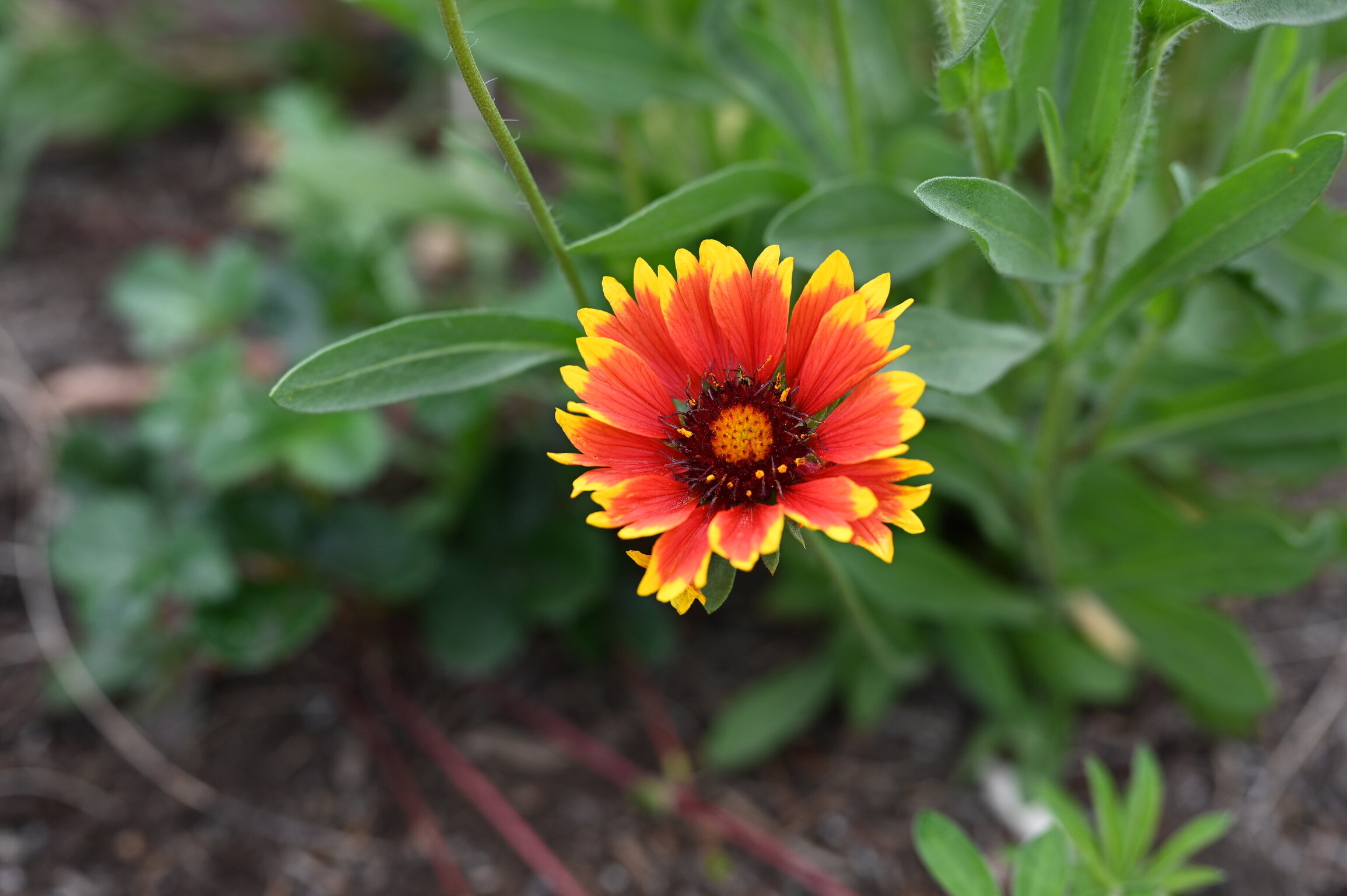A stroll through the rain garden at Luminous HQ
As the days of Portland sunshine once again start to outnumber the days of rain, we thought it was the perfect time to stroll through the rain garden at Luminous HQ and get a closer look at the flowers that we’ve been watching the local bee population enjoy.
The core of Luminous Botanicals resides within sustainability and regenerative agriculture, so when we first moved into our current location in Portland, we knew that we wanted to create a rain garden and invite some biodiversity and pollinators into the city landscape.
Rain gardens intentionally capture rainwater runoff to disperse throughout the garden. Not only are they a perfect match for Portland weather, but the benefits are plenty: Rain gardens help to filter out pollution in water before it enters groundwater, prevent erosion by holding soil in place with deep roots, increase the land’s ability to retain water, and attract insects and pollinators (like bees)!
But the need to create a sustainable environment for bees extends far beyond just wanting to admire them enjoying the flowers. More than 3/4 of the world’s food population rely at least in part on pollination by insects and other animals, and the global honeybee population is dying at an alarming rate. This poses an undeniable threat to the survival of humanity.
In 2014, Global Research published an article that stands to resonate even stronger now that the bee population has continued its rapid decline:
"Perhaps the biggest foreboding danger of all facing humans is the loss of the global honeybee population. The consequence of a dying bee population impacts man at the highest levels on our food chain, posing an enormously grave threat to human survival. Since no other single animal species plays a more significant role in producing the fruits and vegetables that we humans commonly take for granted yet require near daily to stay alive."
Our dependency on pollinators cannot be emphasized enough. And while there’s no denying that humans ultimately shoulder the blame for the global decline in the bee population, the beautiful thing is that we also have the power to help reverse some of the damage we’ve caused.
So how can you help our pollinators? Here are a few of our favorite tips:
Make your own rain garden, or plant pollinator-friendly plants on your balcony, terrace, or garden
Remember to only buy honey from your nearest local beekeeper instead of supermarket shelves (local farmer’s markets are a great place for this)
Set up bee nesting blocks (you can DIY these or buy them at any home furnishings store)
Perhaps most importantly of all — avoid using pesticides that harm bees, and opt into non-toxic ingredients for pest control, such as garlic, kaolin clay, and corn gluten.
So as you’re enjoying your favorite fruits and vegetables, and the picturesque landscapes that Oregon is known for, don’t forget to show some love and gratitude to your local pollinators. The bees will be grateful, and so will our future generations.







